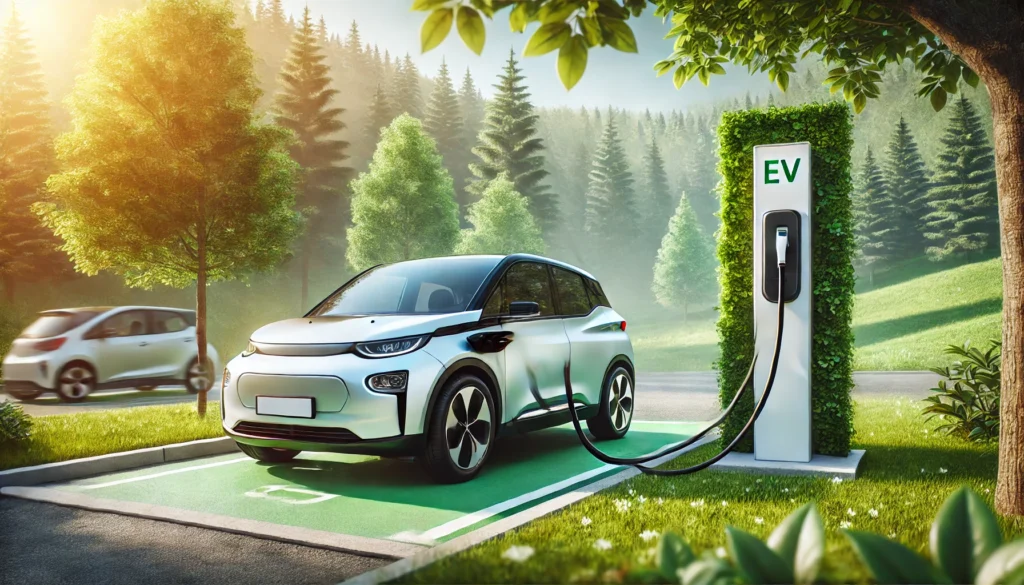The Draft Electric Vehicle (EV) Policy 2025 will be presented in Madhya Pradesh to help it speed up its transition to electric mobility. This policy shall form a complete framework for five model EV cities, namely Bhopal, Indore, Jabalpur, Gwalior, and Ujjain, as EV adoption, infrastructure development, and sustainable transportation hubs. The draft policy shall remain in force for a period of five years from the date of notification or until the date when a revised draft is published by the Madhya Pradesh government.
Five Model EV Cities and Key Initiatives
Under the program, these five cities will introduce large-scale public transport electrification, develop extensive charging infrastructure, and introduce pilot projects to try out advanced EV technologies. The policy also aims to foster cooperation among government agencies, private sector companies, research institutions, and civil society organizations to promote innovation in the EV industry. In addition, it aims to generate new employment opportunities and enhance skill development programs to facilitate a growing green economy in the state.
EV Adoption Targets in Madhya Pradesh
To encourage mass adoption of EVs, the policy sets ambitious targets in multiple categories of vehicles:
- Overall Vehicle Electrification – 40% of all new vehicle registrations will be electric by the end of the policy timeline.
- Commercial Fleet Electrification – 100% of all new commercial vehicle registrations will be electric.
- Electric Three-Wheelers – 70% of all new registrations in passenger and freight segments will be electric.
- Electric Four-Wheelers – 15% of all new registrations will be electric.
- Electric Buses – 40% of all new registrations will be electric.
- Government Vehicles – All state government vehicles, including those under government corporations, boards, and ambulances, will be replaced by EVs, subject to availability of suitable alternatives.
Promote electric cycles as modes of transport.
Electric cycles offer promising opportunities in the realm of urban mobility. The policy focuses on how affordable and practical they are in last-mile connectivity, e-commerce delivery services, and food transport services. Electric cycles are expected to dramatically slash traffic congestion and promote urban sustainable transport because their TCO is significantly lower than for petrol-powered two-wheelers.
Incentives and Support for Charging Infrastructure
To encourage the adoption of electric vehicles, the policy offers reduced electricity tariffs for charging infrastructure. For Charge Point Operators and Battery Swapping Operators, discounted electricity rates are in place as follows:
- Tariffs are set at 0.7 times the Average Cost of Supply (ACoS) during solar hours (9 AM to 4 PM).
- Tariffs at 1.3 times the ACoS during non-solar hours.
- 100% exemption on electricity duty for projects sourcing power from MP DISCOMs or captive power sources.
Subsidies and Regulatory Incentives for EV Adoption
The policy introduces capital subsidy incentives so that EVs become more accessible.
- The government will provide a subsidy of up to ₹50,000 per electric car or ₹2,500 per kWh, whichever is lower, for 10,000 EVs priced below ₹25 lakh.
- 100% exemption on motor vehicle tax and registration fees for EVs sold during the policy period.
- Mandatory transition of all state government departments to EV, with a well-planned yearly progression plan to be announced by the nodal department.
Madhya Pradesh’s Role in India’s Green Energy Future
Madhya Pradesh’s Draft EV Policy 2025 is a leap toward sustainable transport, in support of India’s green energy missions and carbon-cutting targets. The state envisions itself to be at the forefront of electric mobility by stimulating public-private partnerships, expanding the charging infrastructure network, and giving incentives for more people to use electric vehicles. The five model EV cities will be a benchmark for other regions, showing the possibility of large-scale adoption of EVs and sustainable urban transport solutions. When the implementation process begins, Madhya Pradesh will be at the forefront of India’s future in electric vehicles.

